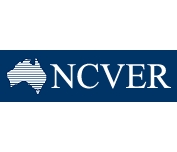
The UNESCO-UNEVOC International Centre: Who We Are | What We Do | Working With Us | Get in Touch
The UNEVOC Network: Learn About the Network | UNEVOC Network Directory
For Members: UNEVOC Centre Dashboard
Thematic Areas: Inclusion and Youth | Digital Transformation | Private Sector Engagement | SDGs and Greening TVET
Our Key Programmes & Projects: BILT: Bridging Innovation and Learning in TVET | Building TVET resilience | TVET Leadership Programme | WYSD: World Youth Skills Day
Past Activities: COVID-19 response | i-hubs project | TVET Global Forums | Virtual Conferences | YEM Knowledge Portal
Our Services & Resources: Publications | TVET Forum | TVET Country Profiles | TVETipedia Glossary | Innovative and Promising Practices | Toolkits for TVET Providers | Entrepreneurial Learning Guide
Events: Major TVET Events | UNEVOC Network News
 NCVER, and UNESCO-UNEVOC, together with the Korean Research Institute for Vocational Education and Training (KRIVET), and the University of Sheffield in the United Kingdom, are currently undertaking a collaborative research project to identify and highlight key issues in the measurement of the return on investment (ROI) in technical and vocational education and training (TVET). Funding and financing are very important issues and understanding how stakeholders – from individuals, to enterprises, through to economies and societies – benefit is essential to understand better TVET systems and policies.
NCVER, and UNESCO-UNEVOC, together with the Korean Research Institute for Vocational Education and Training (KRIVET), and the University of Sheffield in the United Kingdom, are currently undertaking a collaborative research project to identify and highlight key issues in the measurement of the return on investment (ROI) in technical and vocational education and training (TVET). Funding and financing are very important issues and understanding how stakeholders – from individuals, to enterprises, through to economies and societies – benefit is essential to understand better TVET systems and policies.
Initiated as a collaborative research project supported by UNESCO-UNEVOC, the research aims to identify the nature of private and public economic benefits from investment in training, and understand how TVET can potentially contribute to wider social benefits including social inclusion, crime reduction and general health and wellbeing. In particular, the research will focus on:
One of the envisaged outcomes of the collaborative research project is a ROI framework which includes a set of meaningful indicators and measures so that it is applicable to countries worldwide. To ensure the validity and applicability of the framework, several countries in Asia and the Pacific through the UNEVOC network will be involved in testing the framework.
For more information, please see the article![]() published in NCVER’s Insight Newsletter Issue 57.
published in NCVER’s Insight Newsletter Issue 57.